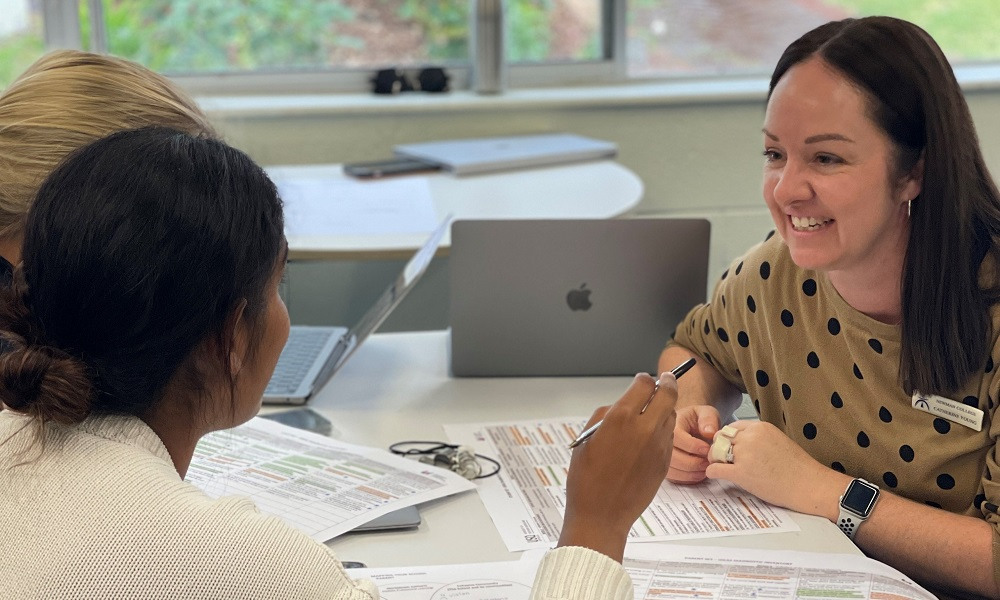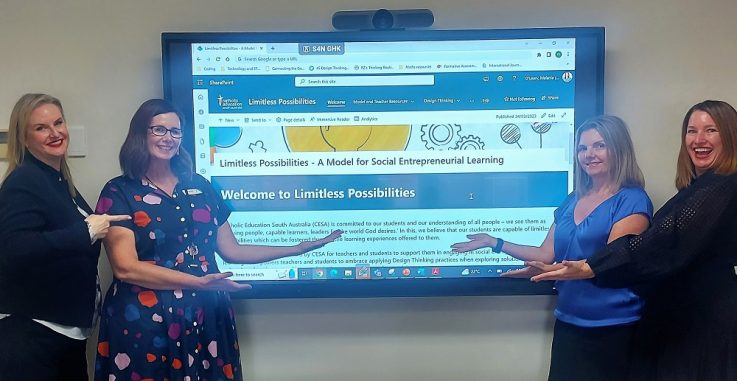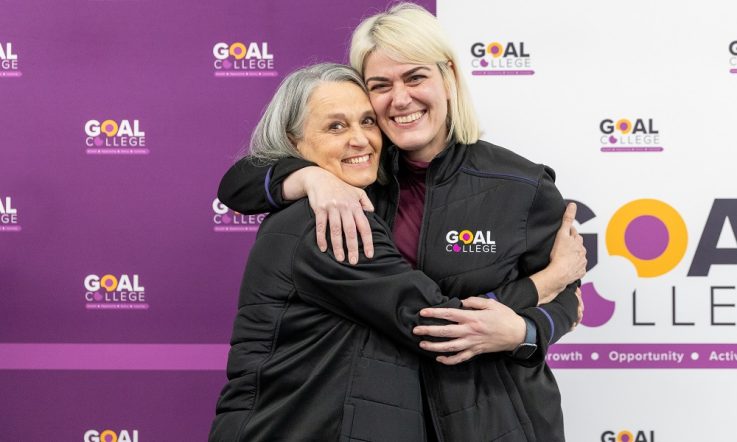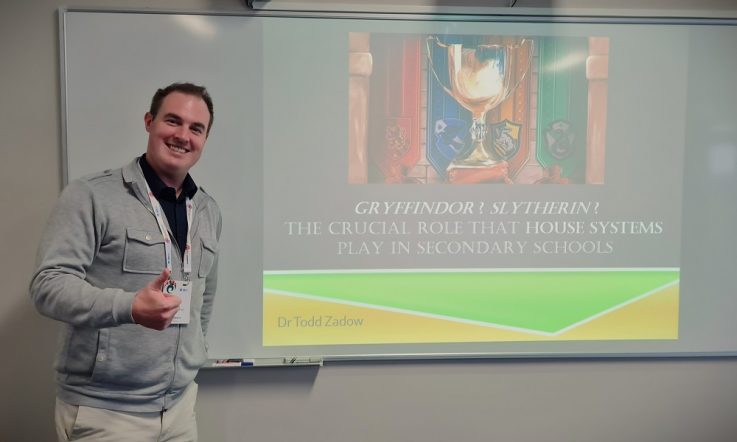The winners of the 2023 Teacher Awards have been announced. The impressive list of winners for our 8 award categories span 5 states and all school sectors. In today’s article, we speak with the winner of the Improving Student Learning and Progress Award, Catherine Young from Newman College in Western Australia, about how she uses data to monitor student progress and evaluate the effectiveness of teaching.
Every student is capable of successful learning and of making ongoing progress. The Improving Student Learning and Progress Award in the Teacher Awards celebrates an educator’s success in improving learning and progress for students, regardless of their starting point – including those working above or below year-level expectations.
The 2023 winner of this category, Catherine Young is Leader of Learning PK-6 at Newman College in Western Australia. She was nominated for the Teacher Award by Deputy Principal of Teaching and Learning PK-12, Beth Murphy, who says that Young’s role in enhancing data literacy skills and supporting educators has been invaluable.
‘Catherine's commitment to enhancing student learning and progress, promoting data literacy, and utilising data effectively has had a significant impact on the teaching community,’ the award nomination reads.
‘Her leadership, expertise, and dedication to continuous improvement create a collaborative and dynamic leaning environment. Through her efforts, educators are equipped with the necessary skills and knowledge to leverage data effectively, resulting in improved decision-making processes, enhanced problem-solving abilities, and better educational outcomes for students.’
Professional learning to support data literacy
In her role as Leader of Learning, Young says she brings data to the forefront of all the professional conversations she has with staff.
‘When I'm talking to teachers about student needs or their progress, or if they’re coming to me with things they need, I always bring it back to the data. What is the data telling you? What is the data saying? Where is their strength? Where’s their area of need? And then making plans around that,’ Young tells Teacher.
Young has implemented various initiatives such as Elastik sessions, Promoting Literacy Development (PLD), and NAPLAN analysis sessions to improve educators’ understanding and utilisation of data. In these professional development sessions, Young covers topics like data collection, analysis methods, and data-driven decision-making.
She has taken the lead in ensuring literacy alignment across PK-6 by introducing PLD. Through sessions focused on understanding data, Young ensures that students are met at their current academic level and have a clear outline of the next steps. Ongoing professional learning is provided to enhance educators’ understanding and skills in working with data results after PLD testing.
‘We wanted to bring in that alignment of language we’re using, of routines and resources, so we could lighten the cognitive load of the students and they could focus on what they're learning, which was the spelling and phonics,’ Young says.
‘The other thing that this program is not just a book, it’s a teacher resource. It’s actually teaching the pedagogy of the lessons and the style that we’re teaching. So upskilling teachers with the high impact teaching strategies and with lesson structures, and we have had a lot of professional learning around this,’ she adds.
In judging this category, the Judging Panel were impressed by how Young delivers professional learning to enhance the data literacy of staff.
The judges commented: ‘There are complexities with introducing a number of initiatives and approaches in a school while attempting to build the capability of the frontline team. The submission was impressive in that Catherine has implemented an improvement approach using data to inform decision-making, coaching staff through skill development and actively following up to create reflective practice opportunities. It’s the implementation approach taken that stands out in comparison to the other submissions.’
Appropriate teaching strategies and interventions
This award celebrates success in improving learning and progress for students, regardless of their starting point – including those working above expectations. Young says there are many students at Newman College who fall into this category, and they have a very strong gifted and talented program to accommodate these learners.
After participating in a series of professional learning workshops and gaining new insights, Young collaborated with a team of experts to develop Gifted Learning Plans that address the specific needs and goals of gifted students. These plans include personalised learning objectives, instructional strategies, and resources to support advanced learning.
‘The thing I got from the training was every day those students should come away saying “I've learned something” and “I've been pushed”. It is really hard to do that and to understand: where is their ceiling? Because in so many tests they reach the ceiling and we’re like, “wow, that’s amazing, you’re at the top”. But their top is actually a lot further,’ Young says.
‘So how do we let them reach their zone of proximal development and get that feeling of a bit of uncomfortableness? Because if they're not pushed, they don't feel that and then they're not going to keep extending themselves.’
Transparent communication with parents
Transparent communication strengthens the partnership between parents and educators, and therefore supports a student’s overall educational experience. Young emphasises the need for parents to have a comprehensive understanding of their child's learning progress and educational requirements. Through regular updates, emails, newsletters, and digital portfolio tools like Seesaw, Young ensures that parents are well-informed about classroom activities, assignments, and events.
She says that the parent and carer conversations she’s been involved in this year have been either with gifted students or students with learning needs. She says to minimise any misunderstandings or miscommunications that take place in these meetings, she always brings data to the table.
‘I think that bringing the data to the front of the conversation has just helped clarify exactly what we’re saying, because it can be really difficult to have those conversations – to say “your child is having difficulties or isn’t keeping up” for whatever reason. Bringing the data in removes that perceived judgment. It just presents the facts and then, from there, we also have a plan moving forward.’
When it comes to supporting students moving forward, Young drew inspiration from work being done at the high school campus. She made changes to Individual Education and Curriculum Adjustment Plans, incorporating standardised test results to provide a comprehensive understanding of students’ academic strengths and areas requiring additional support.
‘What I wanted to do is to have a consistent approach from class to class, from year to year, so that if your child has accommodations in one year, it’s going to be the same in the next year. I created these templates based on best practice and recommendations from research, and then they’re all adaptable to the needs of the individual.’
Young says she feels honoured to have won the Teacher Award in this category, and she’s felt very supported by all the heartfelt comments she’s received from her school community.
‘It’s just such an honour and because none of the things I do is on my own. It's not just me, it’s always a team. It’s the school. It’s the foundations they’ve already built. I’m just building on everything that’s already here.’
The Teacher Awards will be returning in 2024! The awards recognise work that’s been completed in the past 12 months, so it’s not too early to start thinking about your nomination for next year. You can browse the specific criteria for this award, and the other 7 categories, here, and our FAQ page for the Teacher Awards here.
In what ways do you ensure that you’re providing parents and carers with transparent communication? How does this strengthen the partnership and improve student outcomes?
This award celebrates success in improving learning and progress for students, regardless of their starting point – including those working above expectations. Consider how you do this in your own school context. How do you extend students to meet their full potential?



